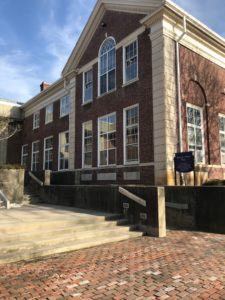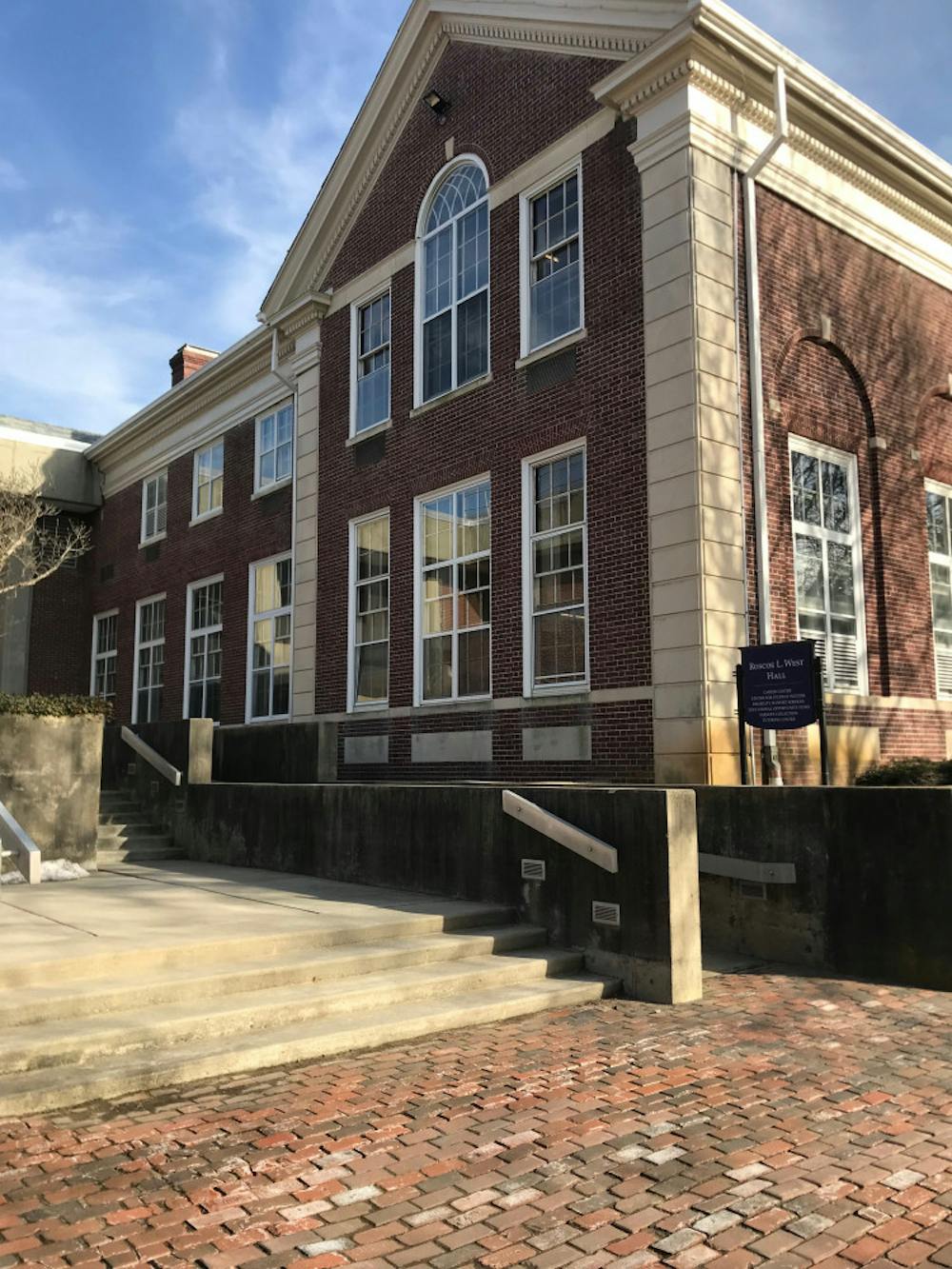By Camille Furst
News Editor
After one racial incident last semester that targeted Marcus Allen, a junior African American studies and journalism and professional writing double major, the student took to Twitter to voice his concerns.

“I am truly disheartened by this experience,” Allen wrote.
Shortly after, Kim Pearson, a professor of journalism and professional writing who knew Allen since his early childhood, responded to his tweet.
“This young man is my student and someone I have known since he was a baby,” she tweeted.
He said that he later reached out to Pearson to communicate what happened and to receive more support.
This was not the first time a student of color has reached out to a professor for help on the College’s predominantly white campus — and certainly not the last.
Some students felt like a minority from their first day at the College.
“I actually hated the school and felt like I didn’t belong here,” said Andrea Hormaza, a junior public health major, in reference to her time at the College before she joined the PRIDE Mentoring Program.
While Black 18-24 year olds make up 16.9 percent of the citizens in New Jersey of that age range, only 5.6 percent of that demographic are represented at the College. Essentially, Black students at the College are represented 11.3 percent less than Black individuals ages 18-24 who live in the state, according to a study conducted in 2016 by the University of Southern California Race and Equity Center. These statistics earned the College a failing grade for statewide equity compared with other state colleges and universities.
Many students of color have been utilizing both informal mentoring, such as going to a professor’s office for advice, and formal mentoring, such as the PRIDE Mentoring Program and the Cooperman Scholars, as a way to seek a sense of belonging and receive guidance during their time at the College.
Pearson has helped many students at the College with their social justice efforts, particularly students of color and women. Some of them are now her colleagues.
“Mostly my conversations have been checking on them, (asking), ‘are you focusing on you?’” she said. “I’m so proud of them.”
She has met with several students during her office hours who sought advice on how to react to the racist or sexist comments that would come up during their classes. One student mentioned overhearing a faculty member saying that girls would “have a harder time because they have smaller brains,” according to Pearson.
Pearson worked as a support system and helped this student be heard.
Referencing Dr. Martin Luther King, Jr., she said, “‘if I could help somebody … my living will not be in vain.’”
Another mentor whom students often consult in times of distress is Piper Williams, a professor in the English and African American studies departments. Williams has helped many students, particularly those who are African-American, over the course of her time at the College.
“I feel like a lot of my mentoring is helping black kids or kids of color negotiate this white space,” Williams said. “(I) mainly tell them to keep most of the noise of racism out of their heads and try to graduate.”
Her experience as an academic adviser has also contributed to her dedication to helping students. She recalls the satisfaction she felt with being able to help a group of freshmen who reached out to her for advice.
“That was very exciting, (trying) to get them to spread their wings,” she said. “They all did turn into these very confident and beautifully accomplished women.”
For Williams, the difference between informal and formal mentoring is based on how much the College acknowledges the need for such services.
“This college shouldn’t be so dependent on the invisible labor of their faculty of color to do this work,” she said. “(They) could try to formalize more mentoring things by putting their money where their mouth is ... because it is a lot of work.”
Williams was previously a mentor for the Cooperman Scholars, a highly-competitive program in which minority students from Essex County are granted scholarships toward a post-secondary education. The College is a partner of this program, which provides a faculty mentor for each student.
The students selected for this program mainly come from low-income communities and school systems. In wanting to ensure these individuals graduate with a college degree, mentoring is a required component of their college careers.
“It’s a really intense kind of mentoring based on a lot of research in how you retain how students can make it through college,” Williams said. “If you can really give them a solid foundation in their first two years, they’re much more likely to graduate.”
Williams has mentored these students involved in this program in the past, but is now only involved in informal mentoring.
The College’s PRIDE Mentoring Program is dedicated to supporting and guiding minority students through their time at the College. Jamal Johnson, the senior assistant director for mentoring and retention, has worked with PMP since its inception and now runs the program on a daily basis.
“Both formally and informally … it could be anywhere between 75 to 100 students a week who are coming through for some type of guidance,” he said. “There’s a lot of different ways you can mentor and have an impact on a student.”
Andrea Hormaza has been one of his students and mentees. She acknowledged Johnson’s support and said that she would have felt lost at the College without his guidance. Hormaza now feels a sense of belonging at the College.
“She wouldn’t have said that her freshman year,” Johnson said, recalling his mentorship experience with Hormaza. “I remember our first encounter was actually negative. She didn’t want to give TCNJ a chance.”
Helping minority students with their personal and academic struggles has always been Johnson’s passion.
“It’s my life,” he said. “It is my calling. It’s not a job, it’s not my profession. It’s a calling,”
However, in the wake of the racial incident last semester, difficulties arose for both Johnson and the students he mentors.
“I can tell you that it was an experience I never had,” he said. “I remember driving to work one day … receiving calls and messages. I literally had to pull over, because I was defeated before I even walked in the door.”
He knew that after the incident became known to the campus community, the students he mentored would be flooding his office. He realized it was all about listening and giving them a shoulder to cry on. In terms of possible solutions to prevent another racial incident, Johnson believes that mentoring is a significant factor.
“When people know you care, then they know they can be their authentic selves,” he said. “They can be vulnerable. But if they don’t know you care, they’re always going to have a wall up.”
Hormaza stated that the connection between students and mentors happens in the office. While Hormaza believes the tension has died down since the racial incident in which Allen was targeted, she still notices the hostility on campus. She believes that, while there is still a lot that needs to be improved upon, nobody is talking about it. That is why she feels professors are the best people to go to for one-on-one informal support.
Since the racial incidents that occurred last semester, the College has continued to inform students and faculty of the steps that the school is taking toward a more inclusive community. While aspects involving the Liberal Learning Program and reforming the Student Conduct Policy are being mentioned as ways to promote diversity and inclusion, mentoring was given little attention in terms of possible solutions.
Hormaza and Johnson agreed that in the aftermath of the racial incidents on campus, there is still much to be done in terms of building a support system for students in need.
“Mentors should be those who enlighten … those who empower and they should be those who uplift,” Johnson said. “That doesn’t take much. Listening, hearing somebody out, can do all of those things. And I think that we’ll be a stronger community and a more inclusive community when people learn to listen.”







